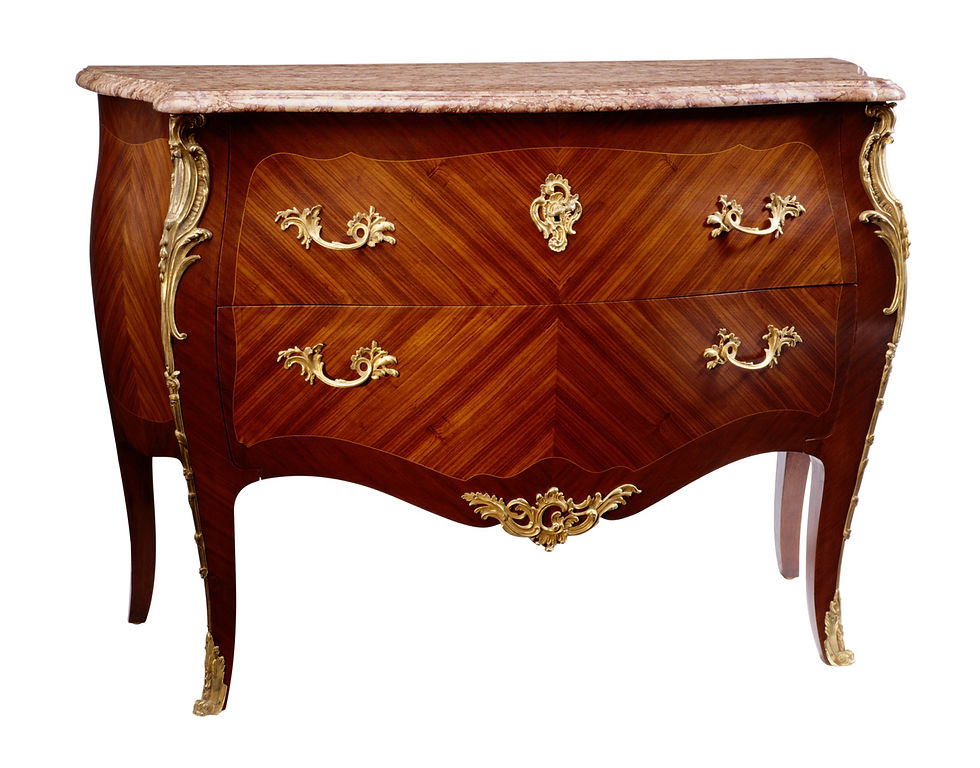
With the arrival of colder temps and shorter days, we can't help but realize that the year will soon be drawing to a close. And for many, the end of the year often means thoughts of charitable giving. Because our federal income taxes are paid on a calendar year basis, it makes sense to ensure that any planned giving is completed before December 31 so as to maximize tax deductions for the year. In addition, the arrival of the holiday season often puts us in a generous and thankful mood. Thus charitable giving often goes up substantially in the last quarter. If you are planning on cash donations, this article is not for you. But if you are considering donations of tangible goods, especially high-value tangible goods, then read on.
As you may have read elsewhere on the website, the IRS has many rules when it comes to the charitable donation tax credit. (As always, I am not a tax advisor nor a tax expert. Please see the IRS website for further information.) Officially, a written appraisal is not required for items valued at below $5,000 and are required for items valued at above $20,000. Between these two amounts, appraisals are "recommended." So, how should you be thinking about this, especially if you are not likely to donate anything worth over $20,000? I would argue that an appraisal is highly desirable for anything over $500. Here's why.

For objects valued at over $500, the IRS requires that you fill out form 8283, Noncash Charitable Contributions, and attach it to your tax return. (Donated items worth less than $500 do not require a separate form, although you should keep receipts.) On this form, you list each of the items you have donated along with some basic information about them, including "fair market value" and "method used to arrive at fair market value." Helpfully, the instructions that accompany the form list "appraisal", "thrift shop value (!?)," "catalog," and "comparable sales" as possible entries in the methodology column. Note that all of these, except for appraisal, require you to do some research and possibly actual legwork to determine an acceptable answer. This would point to one important answer as to why you should get a charitable donations appraisal, even for items under $20,000 - time savings. Depending on the object being donated, it may be very difficult to even know where to begin looking. For example, if you are donating to your local museum or historical society, you may have no idea how to even go about finding out what a 19th century plow is worth. An appraiser is trained in this kind of market research and likely spends much of their time monitoring market conditions. Hiring him or her to do the work likely makes a lot of sense.

Avoiding bias. Let's say you have decided to donate a painting to your alma mater. It's a painting of the campus that you particularly love. You paid $5,000 for it just five years ago. Initial research shows that this artist has fallen out of favor and similar paintings of his have recently gone for only $2,000. You are very reluctant to believe it could possibly have fallen so much and are tempted to put $5,000 as fair market value. This would be a mistake and would not be one that a professional appraiser would make. Again, his or her training and code of ethics require a determination of value based on facts, not sentimentality. There are many other circumstances that could lead to bias. An appraiser is an independent, neutral party (or should be) and thus can help you to avoid logical fallacies when thinking about the value of your item(s).

Accuracy. You want the highest deduction you can get, right? While overvaluing a given contribution might seem like the most obvious risk, undervaluing it is also a significant possibility. There are many factors to consider when making a determination of value. Market familiarity is important, but so is connoisseurship - the ability to recognize an object for what it is. To the average taxpayer, it may be difficult to tell the difference between an antique dresser worth $2,000 and one worth $20,000. Appraisers cannot be experts in every category of antiques, collectibles, or decorative arts, but they can be counted on to recognize when it is time to call on someone who is an expert in order to ensure proper identification.

Peace of mind. You likely have heard that Congress has taken steps to dramatically increase funding of the IRS so that it can do a better job at enforcement. What the final budget will actually look like remains to be seen, but even with no increase in staffing, claims for large tax deductions based on non-cash charitable giving are always at risk of audit. This is especially so when the underlying valuation is based solely on the taxpayer's assertion. Having an objective, professionally-done appraisal that supports that valuation will always strengthen tax deduction claims.
Are you considering non-cash charitable contributions this year? Give me a call - I can help save you time, maximize your refund, and give you peace of mind.






Comentarios